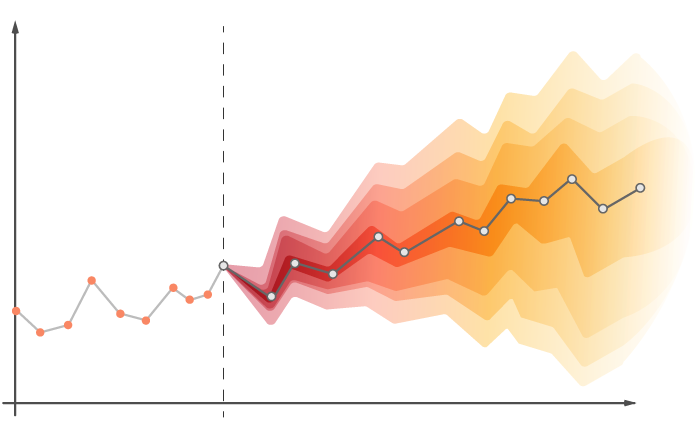
Information
- Time series forecasting is a technique used to make predictions about future values based on past observations of a time series dataset.
- A time series is a sequence of data points recorded over time, typically at regular intervals.
- The goal of time series forecasting is to identify patterns and trends in the time series data and use them to predict future values.
- Time series forecasting can be done using various methods, including statistical models, machine learning algorithms, and deep learning techniques.
- The choice of method depends on the nature of the time series data and the forecasting task at hand.
- Popular statistical models for time series forecasting include ARIMA (AutoRegressive Integrated Moving Average), SARIMA (Seasonal ARIMA), and Exponential Smoothing.
- Machine learning algorithms such as Random Forest, XGBoost, and Support Vector Regression (SVR) can also be used for time series forecasting.
- Deep learning techniques such as LSTM (Long Short-Term Memory) and Transformer have also shown promising results in time series forecasting.
- Time series forecasting is used in a wide range of applications, including finance, economics, weather forecasting, traffic prediction, and energy load forecasting.
'Zettelkasten > Terminology Information' 카테고리의 다른 글
| Fourier analysis (0) | 2023.04.12 |
|---|---|
| STL (Seasonal-Trend decomposition using LOESS) (0) | 2023.04.11 |
| Transformer (0) | 2023.04.09 |
| RNN (Recurrent Neural Network) (0) | 2023.04.08 |
| Long-term time series forecasting (0) | 2023.04.07 |


댓글